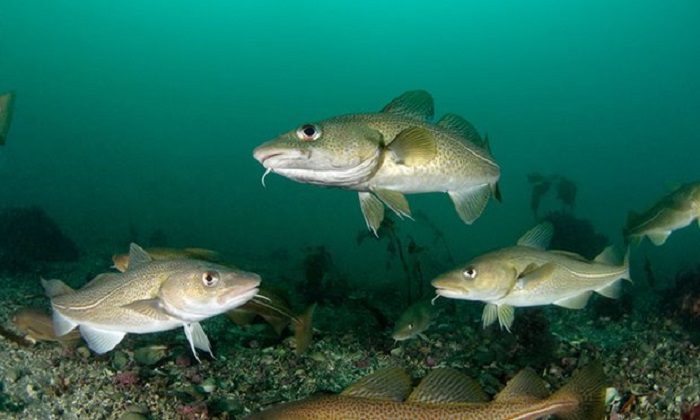Cod may have regional accents, scientists say

There are also concerns that noise pollution from boats and other marine activities could be drowning out the “gossip” cod need to establish territories, raise the alarm and for mating.
Prof Steve Simpson, from the University of Exeter, who is leading the research, said cod had a series of vocalisations, with the ability to change the patterns of their sounds, producing thumps, growls and different frequencies.
They have traditional spawning grounds, making populations quite isolated in reproduction – a process in which males produce a sound to stimulate the females to release their eggs.
He said: “Recordings of American cod are very different to those from their European cousins, so there is a precedent.
“This species is highly vocal with traditional breeding grounds established over hundreds or thousands of years, so the potential for regionalism is there.”
With climate change, sea temperatures are rising and cold water species such as cod are migrating north.
If different regional populations coming into contact for the first time do not share the same vocal repertoire, they could struggle to integrate, share territory and breed, the experts suggest.
Simpson has studied fish on coral reefs and found they are susceptible to noise pollution, and new research aims to see what is going on in the UK’s seas among fish such as cod and haddock, which also use vocalisations.
“Listening to fish is a really good way of surveying what is there, and what their behaviour is,” he said.
Given that cod produce a variety of sounds for establishing territories, raising the alarm and attracting mates, “we may find that the ‘gossip’ essential to their society is being drowned out”, he said.
“If we value our fish stocks - or our Friday night fish supper - we need to understand this,” he said.
But noise pollution can be tackled more easily than other forms of environmental damage, he suggested.
Boats can avoid cod spawning grounds at key times, and research vessels such as the David Attenborough - which shot to fame when a naming competition attracted the suggestion Boaty McBoatface - are being designed to be quiet.
Simpson is discussing soundscapes, fish dialects and his team’s research at the Into the Blue science showcase in Liverpool run by the National Environment Research Council.














-1745485667.jpg&h=190&w=280&zc=1&q=100)
































